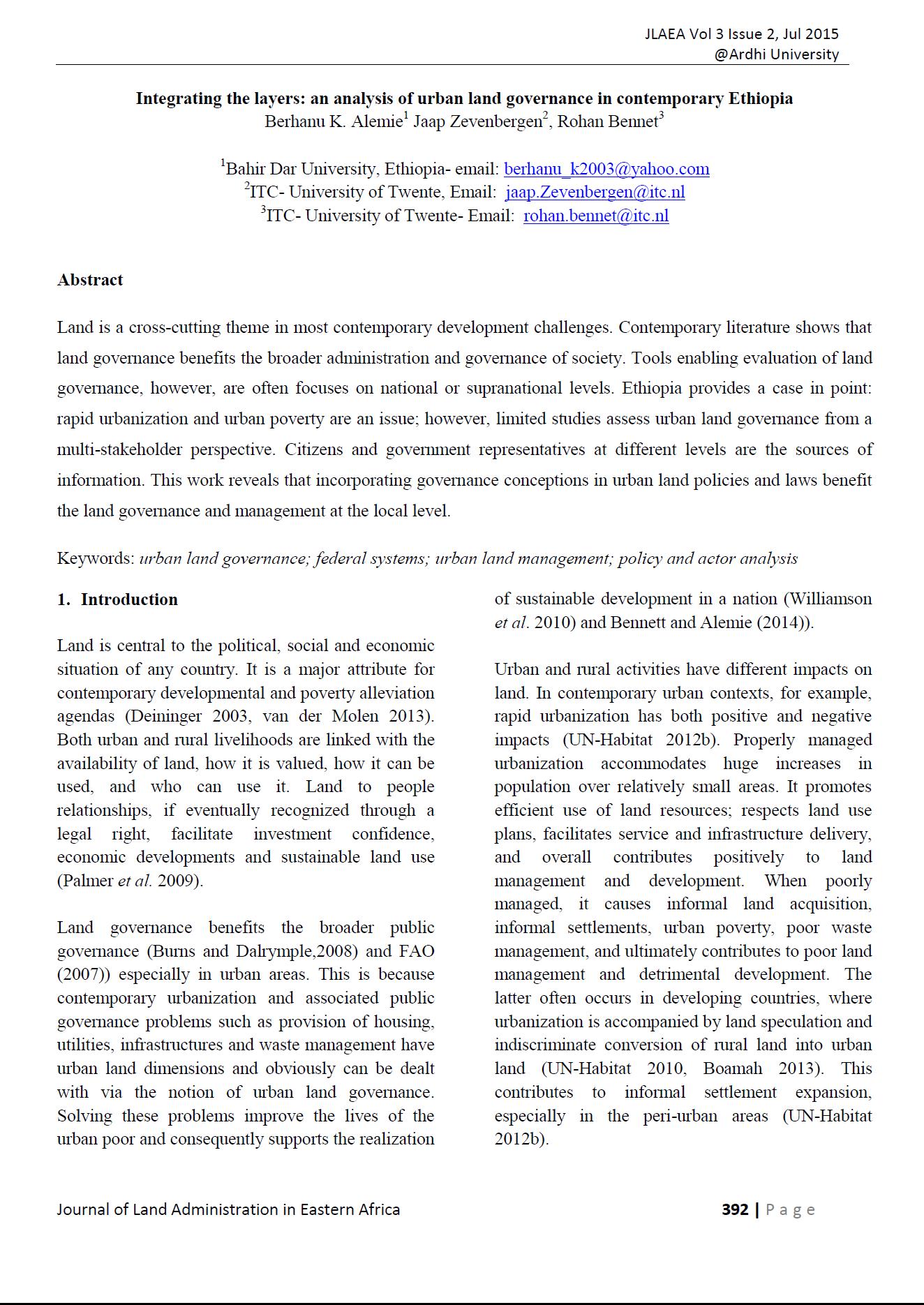Assessment of rural land rental determinants in Ethiopia
This report analyses what the key determinants are for farmers when deciding to rent out their land and how LIFT can influence these to further strengthen the rural land rental market..This resource was published in the frame of the Land Investment for Transformation (LIFT) Programme. For more information;please check: https://landportal.org/community/projects/land-investment-transformation...




